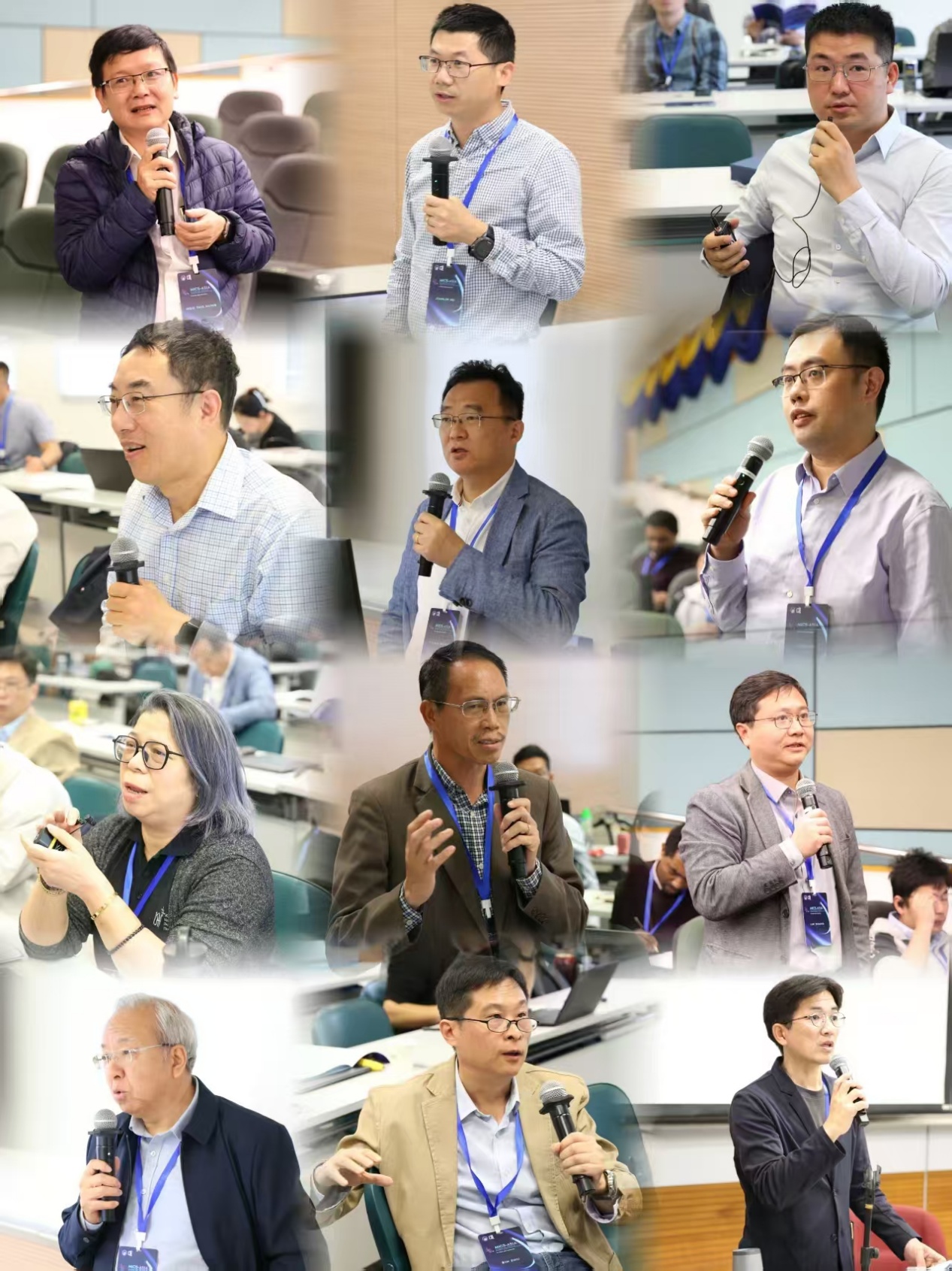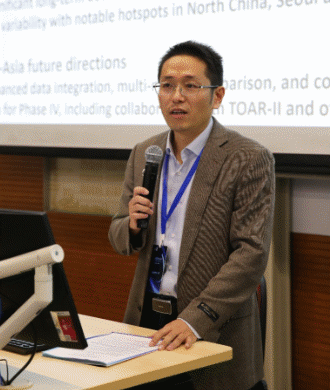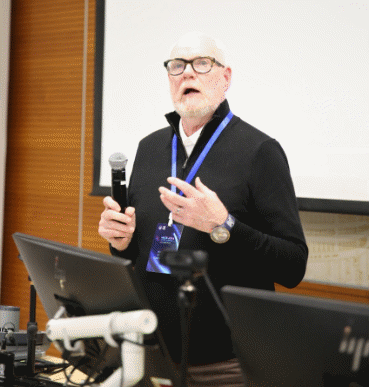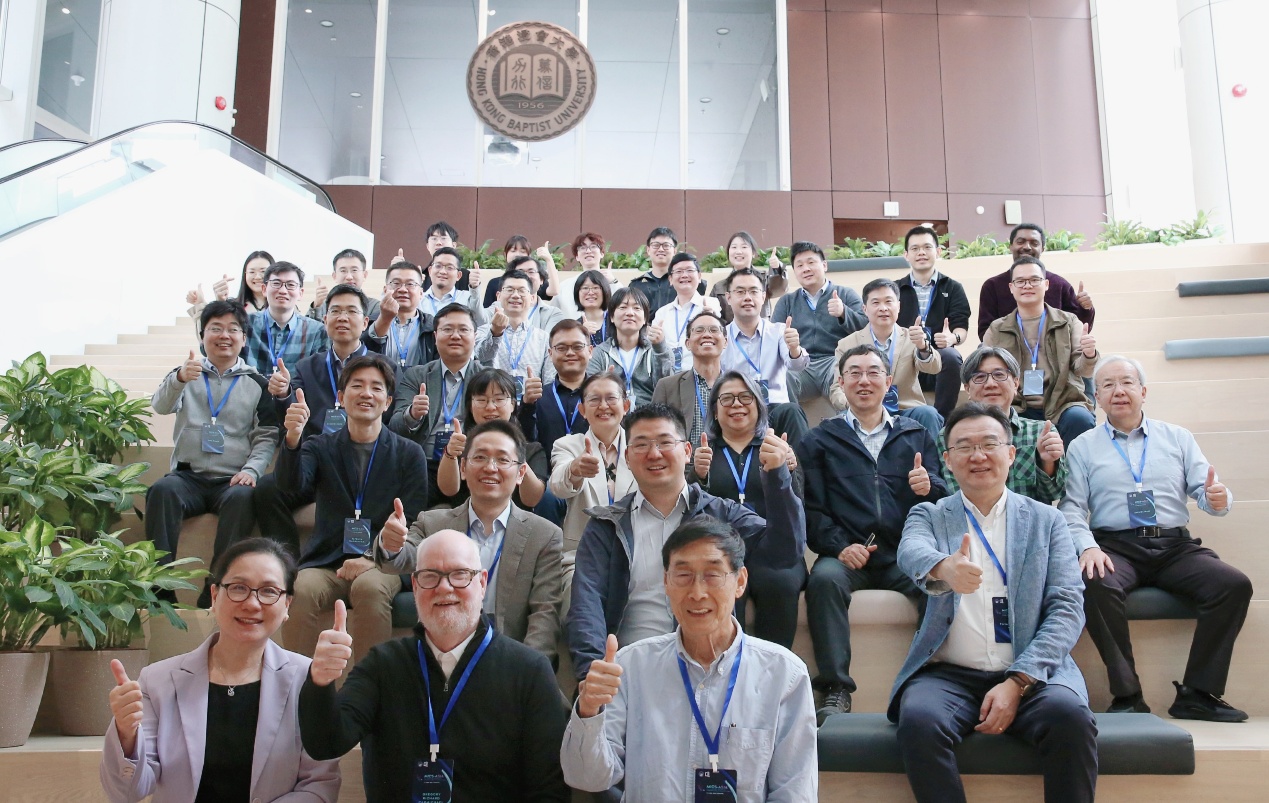15th International Workshop of the Model Inter-Comparison Study for Asia Phase IV (MICS-Asia IV) Held at Hong Kong Baptist University
Date:2025-11-20
The 15th International Workshop of the Model Inter-Comparison Study for Asia Phase IV (MICS-Asia IV) was successfully held at Hong Kong Baptist University (HKBU) from November 12 to 14, 2025. Organized by the Institute of Atmospheric Physics (IAP) of the Chinese Academy of Sciences and co-organized by Hong Kong Baptist University and the National Key Laboratory of Atmospheric Environment and Extreme Meteorology, the conference attracted experts and scholars from multiple countries and regions across Asia. They gathered to engage in in-depth discussions on cutting-edge international scientific issues, including air quality, multi-model evaluation, and climate-pollution interactions.
At the opening ceremony, Professor Wang Zifa from the IAP delivered a speech on behalf of the organizer, extending a warm welcome to the attendees from various universities and research institutions. He emphasized that MICS-Asia, as one of the most representative atmospheric pollution model comparison platforms in the region, has long been committed to promoting the standardization, systematization, and internationalization of regional air quality modeling. He highlighted its significant role in understanding air pollution formation mechanisms and promoting coordinated regional emission reduction policies. Subsequently, Professor Yang Chun, Associate Dean (Research) of the Faculty of Arts and Social Sciences at HKBU, addressed the assembly on behalf of the co-organizer. He welcomed the scholars to HKBU and expressed his hope that the workshop would further promote scientific collaboration and resource sharing in the fields of air quality and climate change across Asia. Following the speeches, participating experts gathered for a group photo to mark the official commencement of the workshop.

Domestic and international experts engaged in lively discussions around the topics.
During the keynote report session, Jun-ichi Kurokawa provided a comprehensive overview of the recent progress of MICS-Asia. He highlighted the main achievements of the various working groups over the past year and outlined the agenda and research plans for the next phase. The report systematically reviewed aspects such as multi-model comparison, emission inventory development, and integration of regional observations, laying the groundwork for subsequent thematic discussions.
The workshop adopted a working group discussion format, featuring four groups: the Observation Working Group, the Climate-Pollution Interaction Working Group, the Air Quality Model Working Group, and the Emission Inventory Working Group.Scholars exchanged views on topics including regional observations, bidirectional climate-pollution feedback, multi-model simulation performance, and emission inventories. They shared their understanding and methodological approaches based on the latest research findings and proposed constructive suggestions for the future direction of MICS-Asia.
During the discussions, all working groups emphasized the crucial role of cross-regional and multi-institutional collaboration in advancing air quality modeling and climate-environment research in Asia. Participants generally agreed that, amid changing pollutant emission structures in East Asia, increasing extreme weather events, and more complex regional transport processes, there is a growing need for multi-model systems with higher accuracy, resolution, and coupling strength. Future efforts should focus on further integrating observational data, enhancing the coupling capability of physical and chemical processes in models, improving the construction of regional emission datasets, and deepening the understanding of key sources of bias through multi-model comparisons. This will provide more scientific support for regional and even global air quality projections. Furthermore, there was a consensus on the need to enhance synergy with international programs and build more open and shared data service platforms in the next phase.
During the plenary discussion session, Professor Ge Baozhu from the IAP summarized the discussions from the working groups and introduced the development status of the MICS-Asia data service platform. He encouraged all participating institutions to actively upload and share data to jointly promote the further deepening of regional collaborative research.

Ge Baozhu from the IAP introduced the data service platform development.
The workshop concluded with a summary speech by Professor Gregory Carmichael from the University of Iowa, USA. He fully affirmed the positive outcomes achieved by the workshop in promoting multi-model comparison and international cooperation. Noting the increasingly severe challenges of global climate change and regional air pollution, Professor Carmichael stated that MICS-Asia, as a long-term and stable platform for scientific cooperation, will continue to play a key role in the future. He expressed hope that research teams from various countries would continue to work hand-in-hand to collectively advance regional air quality modeling to a higher level.

Professor Gregory Carmichael from the University of Iowa, USA, delivered the concluding speech.
With the concluding remarks, the 15th International Workshop of MICS-Asia IV successfully concluded. This event not only strengthened communication and cooperation in the fields of air quality and climate change among Asian countries but also provided direction and momentum for future multi-model comparison studies, further solidifying the foundation of international cooperation for regional environmental governance and scientific development.

Group photo of all participants of the 15th International Workshop of the Model Inter-Comparison Study for Asia Phase IV (MICS-Asia IV).
